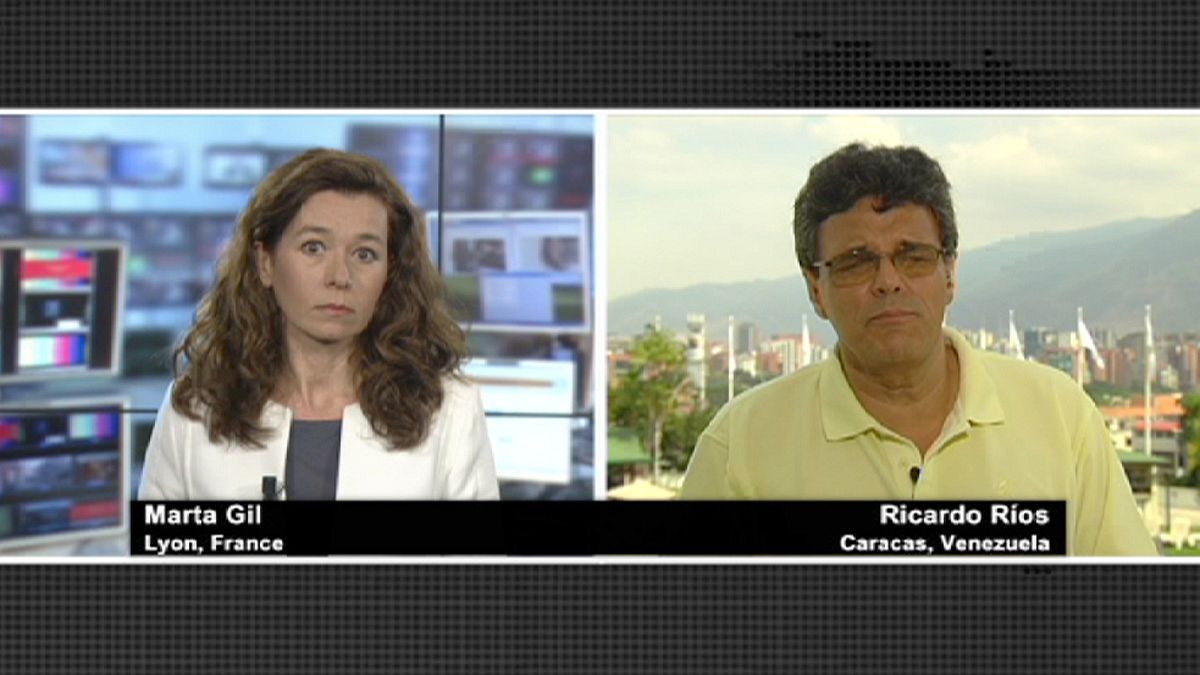Many questions have opened up in Venezuela about its future, following the strongly contested presidential election in which the candidate of the official upper hand won: Nicolas Maduro versus the opposition candidate Henrique Capriles – but only by a one and a half percent margin. Surveys had predicted a far clearer victory for Maduro. Venezuelans’ divisions appear stark, and with this so does uncertainty surrounding what’s to come.
We spoke with Ricardo Rios in Caracas. He is a professor of statistics at the University of Venezuela, and one of the country’s most respected political analysts.
Marta Gil, euronews: “The difference in the support the candidates got translates to around 235,000 votes. Around 80 percent of the electorate of some 19 million people. Is this enough to legitimise Nicolas Maduro as president?”
Ricardo Rios: “The result surprised everyone. It’s very narrow. More than 630,000 votes swung to the candidate of the opposition. This is unknown in our history of electoral procedures, and we have had many. Venezuela’s electoral tradition dates from way back. This result puts the country at a crossroads for dialogue, because the country must get together, faced with two comparable forces. There is no alternative without losing the great wealth that Venezuela has: peace in the form of democratic debate.”
euronews: “The opposition candidate Henrique Capriles has denounced what he says are irregularities on the day of voting, and rejected the results, demanding a complete recount of the ballots, by hand. Is there a realistic possibility to appeal through the electoral tribunal and get a recount?”
Rios: “It has happened on other occasions. Reviewing electoral results is simple to do, the process is automatic. There’s the information from the whole country to do it, all the votes, and we have the technical resources to verify the result. This doesn’t seem worrying to me. I believe that if the results have been tampered with then we need to correct them. Not necessarily because one side or the other interfered but because they weren’t correctly counted.”
euronews: “But do you think that the National Electoral Commission will admit that there were errors?”
Rios: “Yes, they have already done it several times. It is not a problem of being willing or not. It is a question of applying written laws and rules and the electoral statutes. Reviewing the electoral process is so normal that in the past both candidates have accepted it. The candidate of the opposition asked for it and the incumbent, who was favoured to win according to the result accepted. I imagine that seems strange if one is not familiar with the electoral process in Venezuela but going over the process here is not a rare thing.”
euronews: “Turning to what this election has brought out into the open: Capriles managed to unite a large number of voters around his candidacy. He gained nearly 700,000 votes, compared to the election held in October. Could he become Venezuela’s elected president?”
Rios: “Yes, I believe so. I believe that we are facing a very close result and that for the good health and political future of Venezuela it would be better to clear away any doubts. The mechanism to do that, as I said, is institutionalised, legal and not out of the ordinary. It’s true that it doesn’t happen very often. What usually happens is what Capriles did on 7 October when he conceded that President Chavez had won by a comfortable margin. This time there were ‘special interventions’ in several voting stations. There were cases where people were prevented from voting. There were complaints of a lack of impartiality by members of the armed forces, which could alter the result.”
euronews: “The campaigning and the closeness of the result show how deeply Venezuelans are divided. How do you see the future? Is a reconciliation possible and necessary?”
Rios: “It is inevitable, but the campaigning taught us many things, among them that we Venezuelans can be passionate about politics but not about divisions and reconciliation. I have never seen 640,000 voters change position in the space of barely seven months. What is interesting is that the number of voters did not increase. They are the same as those who elected Chavez president on 7 October. This means that there has been an important change of opinion among the electorate that supported Chavez, and which has decided to support the candidate Capriles and not to recognise Maduro’s leadership. It is clear that there is a schism in society, but there are possibilities for reconciliation. It just has to be done.”


